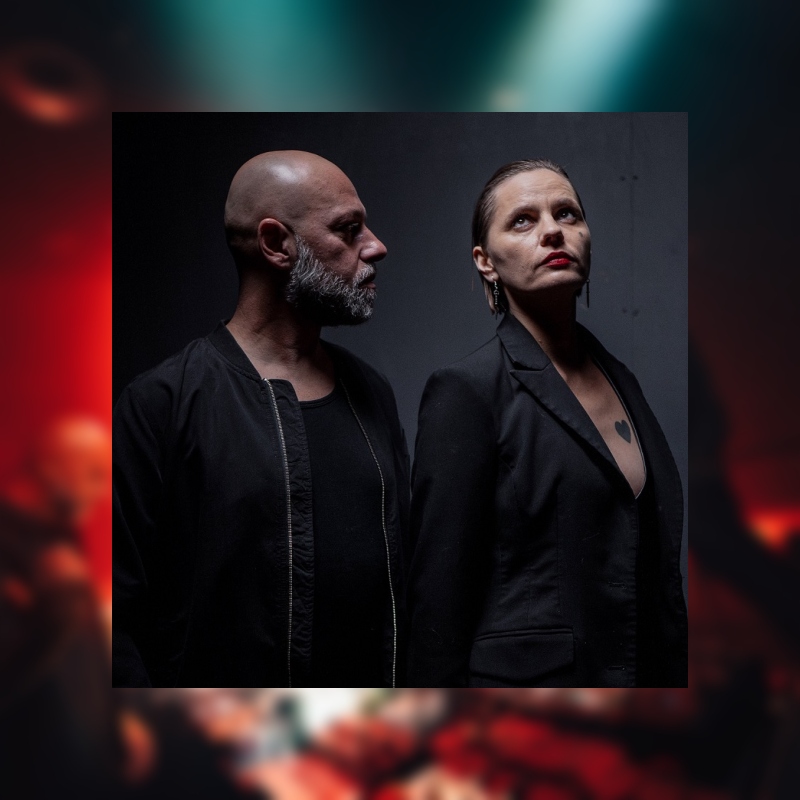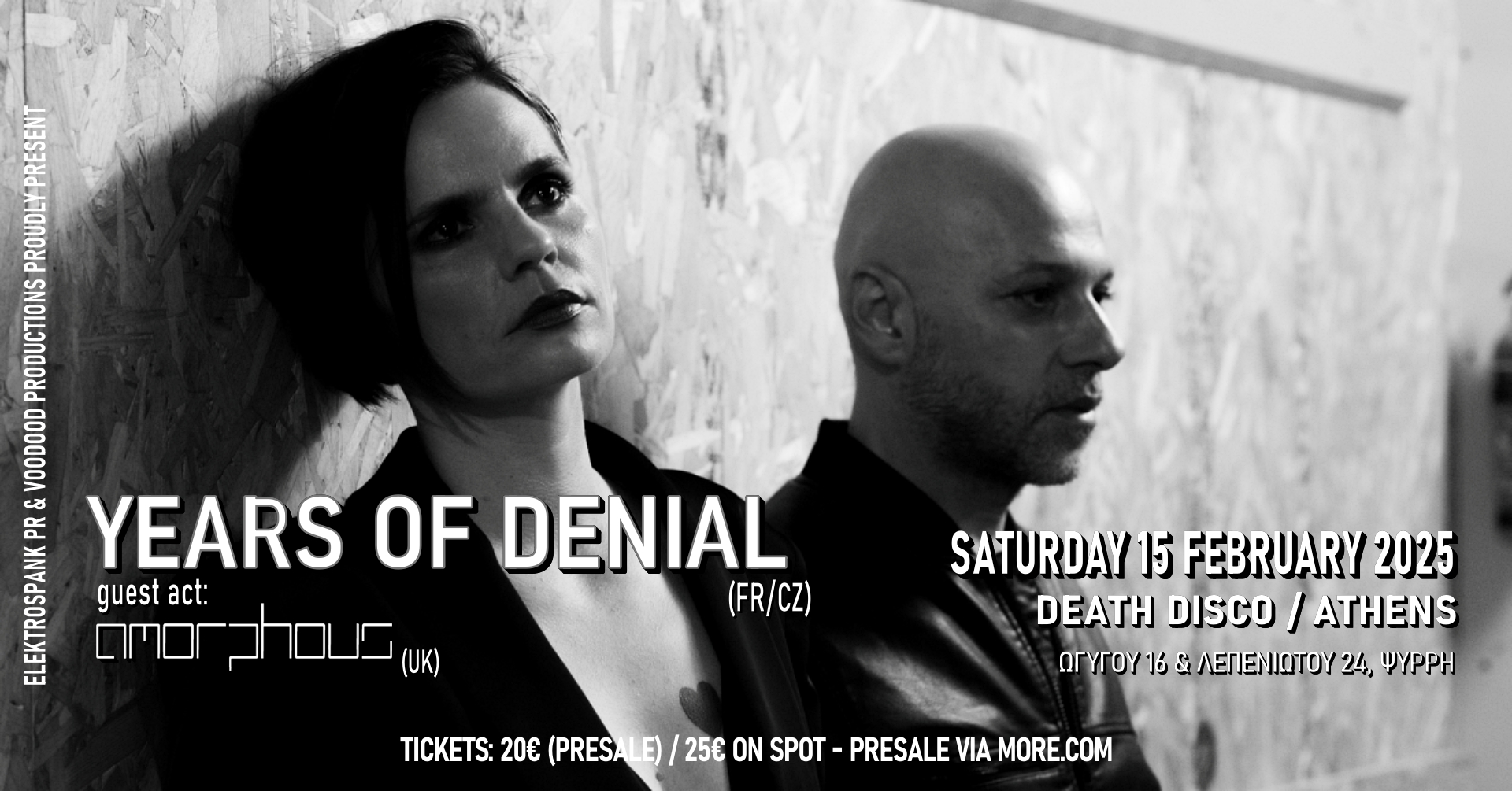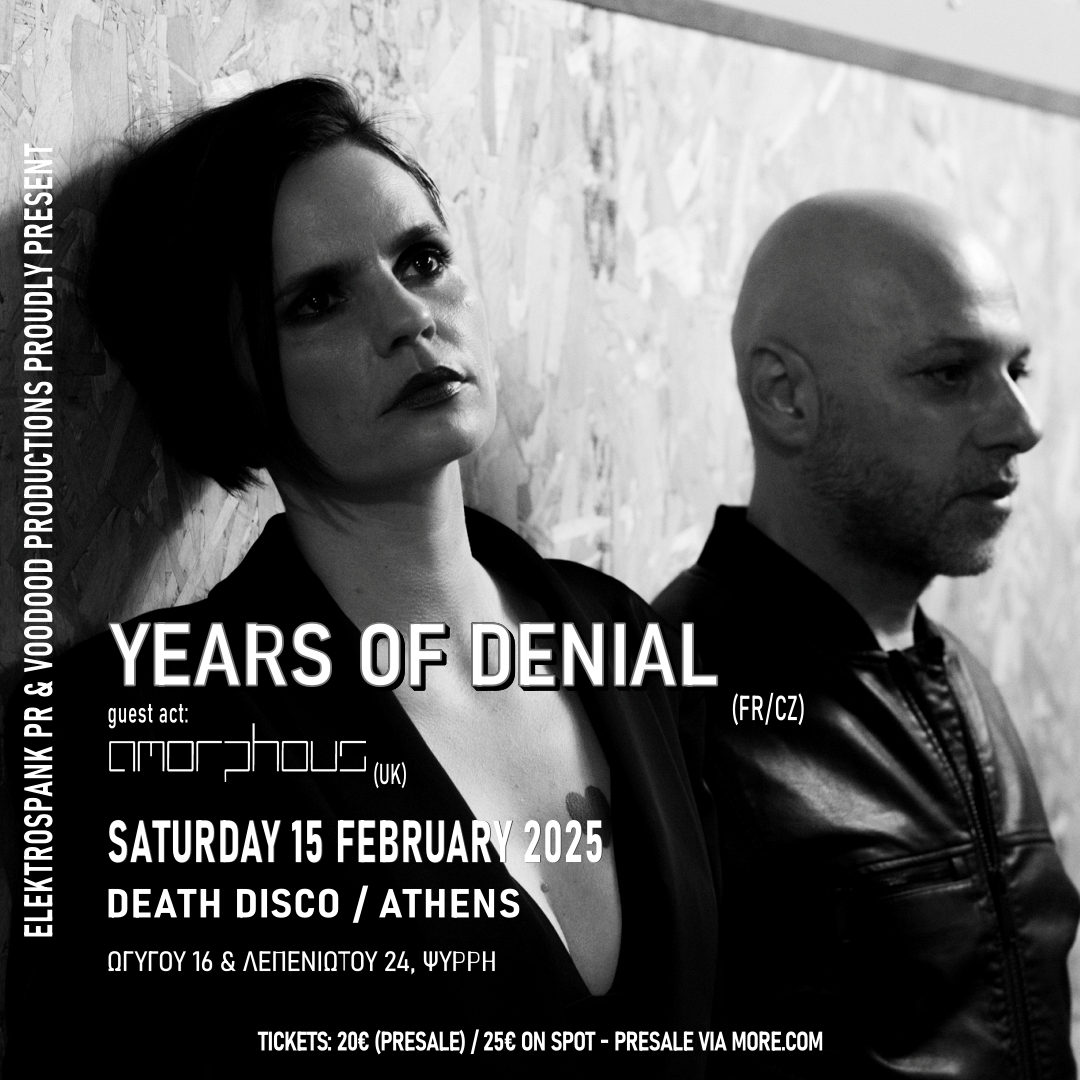Interviews
Years Of Denial, infectious Suicide Disco | Interview
Years Of Denial will be in Athens for a unique live show at Death Disco club!
* cover photo by Zbigniew Kotkiewicz
Years Of Denial has been one my favorite acts since the day that I fell into their sonic landscape created by their amazing "Suicide Disco" back in 2019. The duo from France and Czechia introduced a different approach in the dark wave, electro and dark alternative. Based on their art and music experiences they delivered a sound that they like to call Suicide Disco. If you ask me this is a perfect term to describe their music. "Suicide Disco" was their first LP, which was followed by the sophomore "Suicide Disco vol. II" that expanded their boundaries into the dark techno fields, blended with industrial, post-punk and EBM.
Years of Denial is the project of French musician Jerome Tcherneyan, former times drummer of cult British band Piano Magic and music producer since 1997, and Czech performance & music artist, singer-songwriter & poet Barkosina Hanusova. Active since 2016, the duo has become known across the globe for their well-crafted sharp productions and electrifying live performances.
On the occasion of their live show in Athens, Greece and Death Disco club, on Saturday, February 15th we had this really amazing and interesting chat about everything around their music, their style, the live shows, the past, the present and the future!!
ES: Hi guys! So glad to have you here and I am also excited for the upcoming show in Athens on Saturday, 15/2. Before going into details, would you like to introduce yourself and Years Of Denial?
Hi! Thank you for having us. We are very excited to perform for you. Years of Denial is an electronic duet formed by Jerome, a music producer and drummer, and Barkosina, a performance artist and, singer-songwriter. We met in London at a party called Kaos London, organized by our dear friend Lee Adams, which was held at the legendary Electrowerkz, back in the day. Both of us were involved in DJing at the event, where we bonded over our shared passion for music and raving, which eventually led to our creative collaboration. Since we started working together in 2016, we have released two albums, several EPs, remixes and tracks on various compilations, and have performed live on both local and international stages. The rest, as they say, is history.
ES: You’ve been performing together as Years of Denial since 2016. How has your sound evolved over the years, and how do you see it progressing in the future?
Jerome: In the early days, we often improvised to find our sound and workflow. We relied on our mutual musical backgrounds, avoiding the pressure to fit into specific musical categories. As a result, we found ourselves creating both, dark ambient music and club material, each infused with a strong narrative quality. Playing live certainly influenced our songwriting and overall approach. Experiencing loudness and connecting with people gave us a better understanding of the mood and space we wanted to create and share. We do feel the need to develop and refine what we already have without corrupting ourselves. There’s no need to chase the latest trends; we take pride in our Suicide Disco sound.
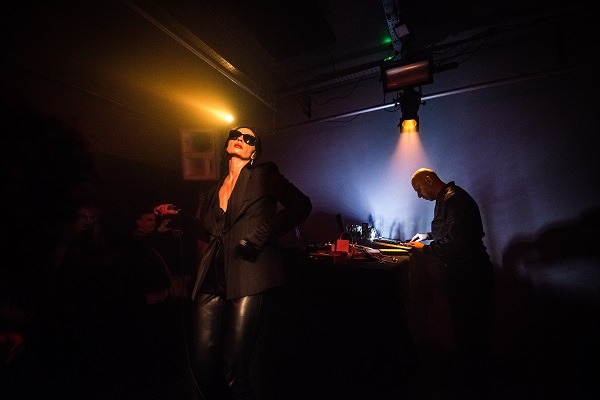
photo by Matt Favero
ES: Your sound taps into post-punk, goth, EBM, industrial, and rave culture. How do you approach merging these diverse influences into one cohesive, electrifying live performance and while maintaining a distinct sonic identity?
Jerome: For us, these genres have a lot in common, at least in their early stages, both sonically and philosophically, not to mention politically. It is music created by misfits for misfits. We are able to navigate between various styles by avoiding all the clichés associated with each genre. For example, our music is too powerful to be classified as just goth, but we also don't make techno DJ tools, either. Instead, we focus on writing songs which is our strength and what makes our live sets cohesive.
ES: Your live shows are known for their powerful performative presence. Can you describe the creative process behind transforming your studio productions into such visceral, immersive experiences on stage? And what can the Athens audience expect at Death Disco Club?
Barkosina: Building a live set is arguably the most challenging and stressful aspect of performing. We have a substantial number of tracks at this point, and selecting the ones that will create an effective live set is no easy task. It requires significant time, rehearsals, and effort. Our aim is to bring vital energy to the stage, combining a sense of mystery and artistry, but with a lively party vibe. It also depends on various factors, such as whether the event is an early concert or a late club night, or if it's an intimate space or a festival. There are so many elements to consider when creating a live set. After years of playing and experimenting, we have finally managed to create something visceral and immersive. It didn't happen overnight, but we have found a formula that works well on stage.
We love the Athenian audience, and your culture feels familiar and welcoming. We feel at home here. What can you expect? Expect some infectious Suicide Disco!
ES: The "Suicide Disco" concept has become a defining term for your music. Can you elaborate on what it represents and how "Suicide Disco II" expands on the original vision?
Barkosina: Our music encompasses a variety of genres, including EBM, techno, darkwave, postpunk, and experimental styles. With so many tags and labels, we decided to create our own singular genre. This led to the birth of the concept of "Suicide Disco." This concept perfectly embodies our sound, combining upbeat dance rhythms with poetically profound and existential lyrics. "Suicide Disco II" represents the continuation and further exploration of our artistic journey and the evolution of our sound.
ES: Barkosina, your vocals add a haunting and hypnotic dimension to your music. What is your lyrical approach, and how do you channel performance art into your live shows?
Barkosina: My lyrical approach is rooted in the rich traditions of poetry, spoken word, and storytelling. It serves as a canvas for my artistic expression, allowing me to explore and articulate the complexities of feelings, emotions, dreams, dystopia, fears, and desires. Each lyrical piece transforms into a vivid sonic landscape, a voice that acts almost like a narrator— maybe the inner voice you hear in your head or perhaps the one that confronts you directly. The voice is often deadpan and linear, evoking a sense of detachment that draws listeners in and so the tone becomes repetitive, it becomes hypnotic, sometimes mixed with more direct and expressive vocal moments, creating a dynamic contrast that captures attention—raw and confrontational. Through this blend, I wish to create an experience that invites the listener to reflect on and connect more deeply with their own feelings and state of mind.
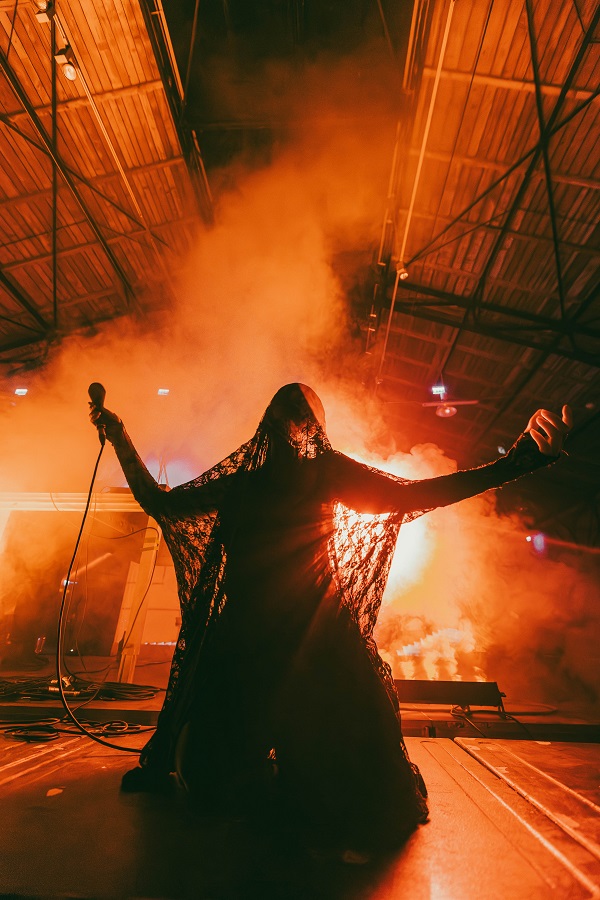
photo by Erika Laszlo - Demeter
I channel performance art into our live shows by incorporating performative and theatrical elements. For example, working with objects like cables, microphone stands, and microphones, along with instruments, can be transformed into symbols that enhances the narrative and strong performance aspects of the show. As well as the use of props and costumes also helps immerse the audience in a world of storytelling, supported by physical movements and a strong stage presence. Stage presence is not merely an accessory; it is the essence of live performance and communication, capturing the heartbeat of each interaction. Every gesture or movement must have purpose and intention, representing a conscious exploration of the stage's dimensions, the space, audience proximity, lighting, and so on. All these factors are crucial for creating meaningful imagery and contribute to the art of performance. There is so much to consider— the stage is a playground, and the possibilities are endless!
ES: Jerome, you’ve had a long history in music, from your time in Piano Magic to producing since the late ‘90s. How do your past experiences inform your work with Years of Denial?
Jerome: My 16 years with Piano Magic was a fantastic journey. I had the opportunity to collaborate with some incredible artists like Brendan Perry (Dead Can Dance), Simon Raymonde (Cocteau Twins) or Alan Sparhawk (Low) to name a few. These experiences were very humbling and far from the hype and coolness of the electronic scene. Piano Magic was my first band with a real lyricist, allowing me to work within a song format and develop arrangements that served the narrative. Beyond my time with Piano Magic, my entire experience in London was constructive and shaped what would come next for me. During that period I was also DJing, producing instrumental music, working as a sound engineer in clubs and recording studios, and promoting parties. When the band decided to call it a day, it was only a matter of time for me before I began mixing electronic sounds and vocals. That's when I met Barkosina. I realized it was the right moment to fully embrace our mutual potential and create a new full-time project together.
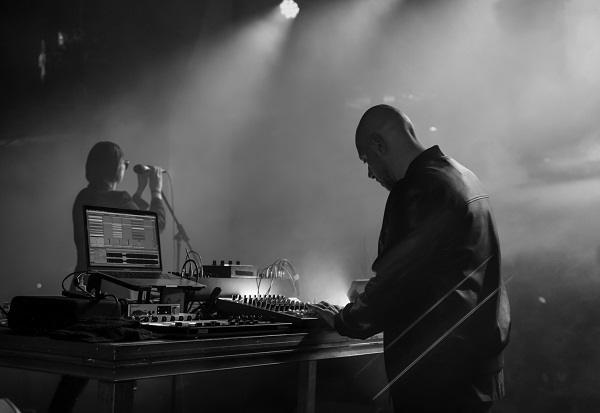
photo by Rebeca Balas
ES: Hardware and dub processing play a huge role in your productions. What are some of your favourite pieces of gear, and how do they shape the unique sound of Years Of Denial?
Jerome: Sadly, I don’t own my favourite piece of gear haha, which is the EMS Synthi AKS. Some machines that have contributed to the gritty quality of our sound include the EMU SP1200, Roland Sh101 /707/RE501, Korg MS10 and Vermona DRM1, Sequential Circuits Pro One and Formanta Polivoks. Also following the Eurocrack epidemic, I rediscovered some of my old gear by processing them in various ways. These tools allow me to create a sound with character. I’m not concerned about what is typically considered "good" sounding production; to me, the perfect mix doesn’t exist.
I personally have an issue with a lot of music I hear nowadays, while it may sound fantastic and technically impressive, it often lacks individuality and soul, making it difficult to distinguish one artist from another, it's becoming hard to tell who is who. Additionally, the excessive use of sound design kills it for me … it's like putting make-up on top of makeup on top of makeup… it also sets a date for the music and I personally like timeless music. Just like us as humans, our music has its imperfections and unique characteristics, and that’s what makes it honest and distinctive.
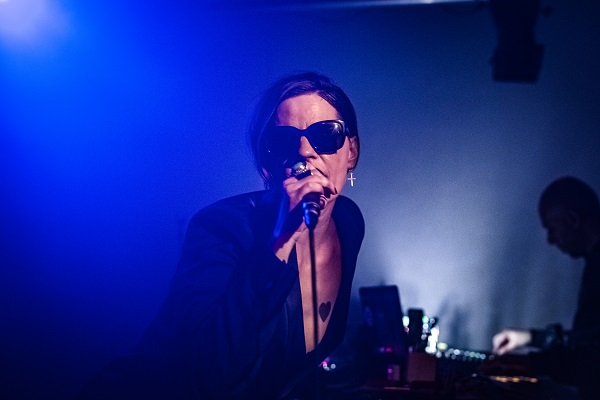
photo by Matt Favero
ES: With releases on labels like Death & Leisure, Pinkman, and Khemia, you’ve established a strong presence in the underground scene. How do you balance staying focused to your dark aesthetic while evolving with current trends in electronic music?
Barkosina: After years of dedicated work, we’ve discovered our unique sound. Once you identify your sound, it’s essential to continue refining and exploring it further. Consistency and focus are crucial; if you find yourself easily bored and frequently switching genres, it may be worth considering whether you have fully explored what you initially started. We believe that when artists drastically change their sound, it can sometimes raise questions. Trends in electronic music are fleeting, and it’s important to think about the long-term: what happens when the current trend fades? Will artists return to the foundational elements of their earlier work? It's essential to adopt a radical approach and not get distracted by trends and hype, as these are temporary. Today's technology offers an incredible range of creative possibilities, but one must be careful. In the coming years, electronic music will become even more accessible to everyone, much like DJing is today. This accessibility is driven by capitalism and ego, it has nothing to do with art.
ES: Athens has a thriving alternative music scene. What excites you about performing at Death Disco Club, and how does the local atmosphere inspire your set for this show?
We are thrilled to perform at Death Disco Club for the very first time. We enjoy playing in new venues, and this one has us especially excited. We love Athens and its people; the city is raw, punk, authentic, fun, and lively!
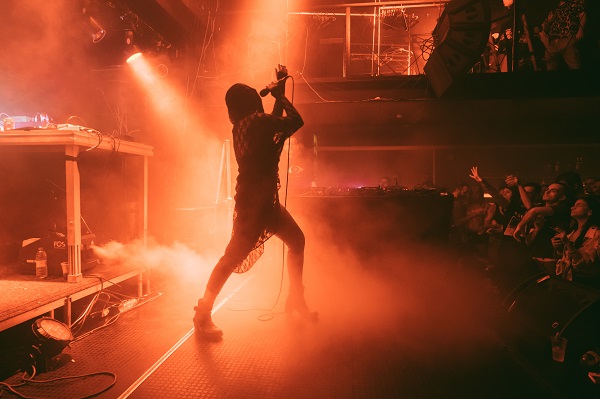
photo by John Koits
ES: Following the success of "Suicide Disco II" and your growing legacy as a live act, what’s next for Years of Denial? Any upcoming releases, collaborations, or creative directions you’re excited about?
We are very happy to have found a reliable and trustworthy label to work with: Veyl Records. We have been working with them for quite some time now and will continue to do so. We recently repressed Suicide Disco Vol. 2, and we are thrilled to announce that there will also be a reissue of Suicide Disco Vol. 1 due to popular demand. Additionally, we will be releasing an EP on Veyl this year and slowly working on new material for the next album Suicide Disco Vol. 3.
ES: Thank you very much for this chat. Is there anything more that you would like to add?
Thank you for the interview. And see you soon!
Info:
https://www.facebook.com/yearsofdenial
https://www.instagram.com/yearsofdenial
https://yearsofdenial.bandcamp.com/


